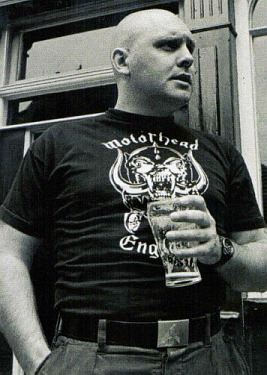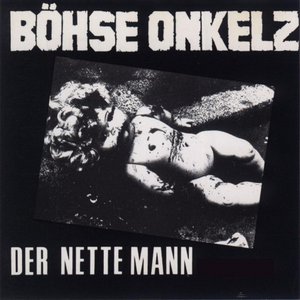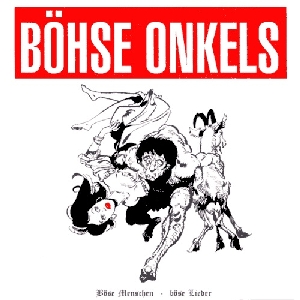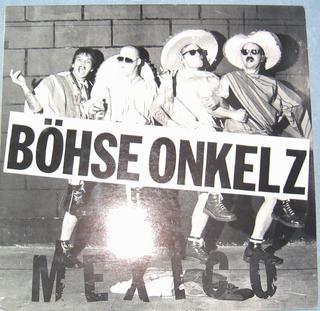Related Research Articles

A skinhead is a member of a subculture which originated among working class youths in London, England, in the 1960s and soon spread to other parts of the United Kingdom, with a second working class skinhead movement emerging worldwide in the late 1970s. Motivated by social alienation and working class solidarity, skinheads are defined by their close-cropped or shaven heads and working-class clothing such as Dr. Martens and steel toe work boots, braces, high rise and varying length straight-leg jeans, and button-down collar shirts, usually slim fitting in check or plain. The movement reached a peak at the end of the 1960s, experienced a revival in the 1980s, and, since then, has endured in multiple contexts worldwide.

Ian Stuart Donaldson, also known as Ian Stuart, was an English neo-Nazi musician. He was best known as the front-man of Skrewdriver, a Punk band which, from 1982 onwards, he rebranded as a Rock Against Communism band. He raised money through nationalist concerts with his Blood & Honour network.
Blood & Honour is a neo-Nazi music promotion network and right-wing extremist political group founded in the United Kingdom by Ian Stuart Donaldson and Nicky Crane in 1987. It is composed of White Nationalists and has links to Combat 18.

Böhse Onkelz, sensational spelling of böse Onkel is a German rock band formed in Frankfurt in 1980. The band reunited in 2014. Despite mass-media criticism concerning their past as skinheads, several of their later records topped the German album charts. E.I.N.S. was their most successful album, with over 510,000 copies sold.
White power skinheads, also known as racist skinheads and neo-Nazi skinheads, and pejoratively known as Boneheads, are members of a neo-Nazi, white supremacist and antisemitic offshoot of the skinhead subculture. Many of them are affiliated with white nationalist organizations and some of them are members of prison gangs. The movement emerged in the United Kingdom between the late 1960s and the late 1970s, before spreading across Europe, Russia and North America in the 1980–1990s.
Skullhead was a nationalist Oi! band from the Newcastle area. It was part of the Rock Against Communism (RAC) movement.

Der nette Mann is the debut album by German rock band Böhse Onkelz. It was released in 1984. Der nette Mann is considered the first album of the German skinhead subculture.

Böse Menschen – Böse Lieder is the second album by the German rock band Böhse Onkelz. It was released in 1985.

Mexico is an EP and the third album by German rock band Böhse Onkelz. It was released in 1985. After Mexico, the band left Rock-O-Rama and the skinhead attitude.

Weiß & Schwarz is a work consisting of two albums by German rock band Böhse Onkelz. Both were released at the same time in 1993. The track numbering begins with 1 through 12 on Weiß and ends with 13 through 23 on Schwarz.
Skrewdriver were an English punk rock band formed by Ian Stuart Donaldson in Poulton-le-Fylde, Lancashire, in 1976. Originally a punk band, Skrewdriver changed into a white supremacist rock band after reuniting in the 1980s. Their original line-up split in January 1979 and Donaldson reformed the band with different musicians in 1982.

Stephan Weidner, also known as Der W, is a German musician, songwriter and producer. From 1980 to 2005, he was the bassist, songwriter and leader of the German rock band Böhse Onkelz. He was also a singer with Nordend Antistars, a collaboration with Sub7even singer Daniel Wirtz. In April 2008, Weidner's first solo album Schneller, Höher, Weidner was released.

Matthias "Gonzo" Röhr is a German musician who has been the guitarist of the rock band Böhse Onkelz since 1981. His stage name derives from Double Live Gonzo!, an album by Ted Nugent. When Böhse Onkelz split up between 2005 and 2014, he was known as Matt Roehr.
Oi! is a subgenre of punk rock that originated in the United Kingdom in the late 1970s. The music and its associated subculture had the goal of bringing together punks, skinheads, and other disaffected working-class youth. The movement was partly a response to the perception that many participants in the early punk rock scene were, in the words of The Business guitarist Steve Kent, "trendy university people using long words, trying to be artistic...and losing touch."
This is the discography for the German rock band Böhse Onkelz. According to record certifications and additional sources they have sold over 5,338,000 records and 425,000 videos/DVDs in their career. E.I.N.S. is their most successful album with over 510,000 units sold. Seven of their albums peaked at number one on the German albums chart. The Onkelz are one of the most bootlegged bands with over 250 bootlegs circulating as of 2005. Their albums spent 311 weeks on the German albums chart.
No Remorse were an English neo-Nazi and Rock Against Communism (RAC) band led by singer Paul Bellany, aka Paul Burnley.
Clark Reid Martell is an American white supremacist and the former leader of Chicago Area SkinHeads (CASH), which was founded in 1985 by six skinheads under his leadership. This was the first organized neo-Nazi white power skinhead group in the United States. The group was also called Romantic Violence, and was the first US distributor of records and tapes from the English band Skrewdriver.
Combat 84 were an English punk rock band active during the early 1980s. Formed in 1981 in Chelsea, London by skinheads 'Chubby' Chris Henderson and 'Deptford' John Armitage, Combat 84 rose to national prominence after being featured in a controversial 1982 BBC Arena documentary about the skinhead movement.
White power music is music that promotes white nationalism. It encompasses various music styles, including rock, country, and folk. Ethnomusicologist Benjamin R. Teitelbaum argues that white power music "can be defined by lyrics that demonize variously conceived non-whites and advocate racial pride and solidarity. Most often, however, insiders conceptualized white power music as the combination of those themes with pounding rhythms and a charging punk or metal-based accompaniment." Genres include Nazi punk, Rock Against Communism, National Socialist black metal, and fashwave.
References
- 1 2 3 4 5 6 7 8 Raposo, Ana; Bestley, Russ (1 November 2020). "Designing fascism: The evolution of a neo-Nazi punk aesthetic" (PDF). Punk & Post-Punk. 9 (3): 467–498. doi:10.1386/punk_00039_1. ISSN 2044-1983.
- ↑ "The Germans Are Coming part 1: Vomit Visions and Running Soldiers". Creases Like Knives. 15 March 2022. Retrieved 4 March 2023.
- 1 2 3 "The Germans Are Coming part 2: Bad uncles and nasty stuff". Creases Like Knives. 15 March 2022. Retrieved 4 March 2023.
- ↑ Forbes, Robert; Stampton, Eddie (9 November 2015). The white nationalist skinhead movement : UK & USA, 1979-1993. p. 119. ISBN 1-62731-024-X. OCLC 908072099.
- ↑ Cotter, John M. (1996). "Sounds of hate: White power rock and roll and the neo‐nazi skinhead subculture". Terrorism and Political Violence. 11 (2): 119. doi:10.1080/09546559908427509. ISSN 0954-6553.
- ↑ Brown, Timothy S. (2004). "Subcultures, Pop Music and Politics: Skinheads and "Nazi Rock" in England and Germany". Journal of Social History. 38 (1): 157–178. ISSN 0022-4529.
- 1 2 Protzman, Ferdinand (4 February 1993). "Germans Crack Down on Right-Wing Rock Music". The New York Times. ISSN 0362-4331 . Retrieved 4 March 2023.
- 1 2 3 4 Dyck, Kirsten (2017). Reichrock: The International Web of White-Power and Neo-Nazi Hate Music. Rutgers University Press. p. 41. ISBN 9780813574738.
- 1 2 Ossami, Darius (26 April 2022). "Buch über Rechtsrocklabel: Angenehme Unterhaltung mit Herbert". Die Tageszeitung: taz (in German). ISSN 0931-9085 . Retrieved 5 March 2023.